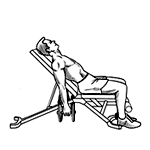Many countries around the world are able to offer a variety of food to its populace, however, there are many people who remain in the dark about the role of a diet that is suitable in the management and treatment of depression. The brain and the gut work synergistically with each other and with other organs, therefore nutrition influences the genetic onset and consequences of many chronic diseases. The biological link between psychiatric and metabolic disorders is now recognized.
Review of the news release by the World Health Organization (WHO) on March 30, 2017, defines depression as a common mental illness characterized by persistent sadness and a loss of interest in activities that people normally enjoy, accompanied by an inability to carry out daily activities, for 14 days or longer.
In addition, people with depression normally have several of the following: a loss of energy; a change in appetite; sleeping more or less; anxiety; reduced concentration; indecisiveness; restlessness; feelings of worthlessness, guilt, or hopelessness; and thoughts of self-harm or suicide. (1)
WHO also identified that depression increases the risk of substance use disorders and diseases such as diabetes and heart disease, reversely people with these other conditions also have a higher risk of depression. (1) The intake of seafood has shown to be inversely related to the incidence of depression in populations around the world. When EPA (eicosapentaenoic acid) DHA (docosahexaenoic acid), and multivitamins were given to prison inmates, antisocial behavior including violence, fell significantly compared with those on placebo. In another study, teens who had previously attempted suicide made less suicide attempts when given EPA and DHA (Hallahan et al 2007).
Review of the news release by the World Health Organization (WHO) on March 30, 2017, defines depression as a common mental illness characterized by persistent sadness and a loss of interest in activities that people normally enjoy, accompanied by an inability to carry out daily activities, for 14 days or longer.
In addition, people with depression normally have several of the following: a loss of energy; a change in appetite; sleeping more or less; anxiety; reduced concentration; indecisiveness; restlessness; feelings of worthlessness, guilt, or hopelessness; and thoughts of self-harm or suicide. (1)
WHO also identified that depression increases the risk of substance use disorders and diseases such as diabetes and heart disease, reversely people with these other conditions also have a higher risk of depression. (1) The intake of seafood has shown to be inversely related to the incidence of depression in populations around the world. When EPA (eicosapentaenoic acid) DHA (docosahexaenoic acid), and multivitamins were given to prison inmates, antisocial behavior including violence, fell significantly compared with those on placebo. In another study, teens who had previously attempted suicide made less suicide attempts when given EPA and DHA (Hallahan et al 2007).



